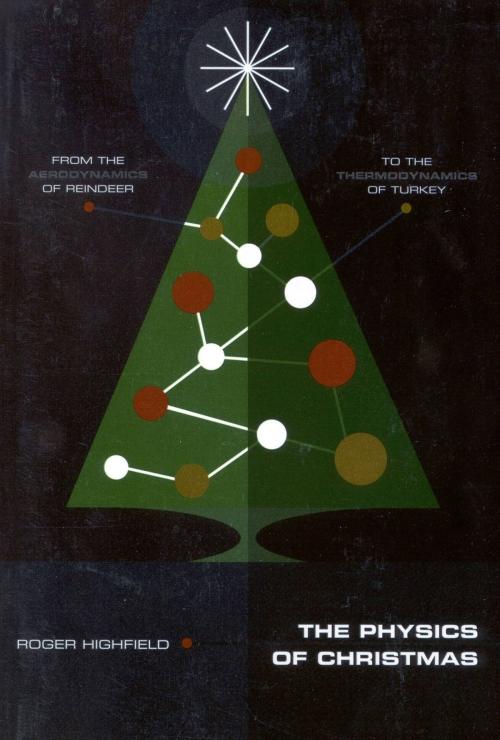The Physics of Christmas
From the Aerodynamics of Reindeer to the Thermodynamics of Turkey
Nonfiction, Science & Nature, Science, Physics, General Physics| Author: | Roger Highfield | ISBN: | 9780316054515 |
| Publisher: | Little, Brown and Company | Publication: | December 14, 2008 |
| Imprint: | Back Bay Books | Language: | English |
| Author: | Roger Highfield |
| ISBN: | 9780316054515 |
| Publisher: | Little, Brown and Company |
| Publication: | December 14, 2008 |
| Imprint: | Back Bay Books |
| Language: | English |
Why might Rudolph's nose have been red? Why do we actually give Christmas gifts? Why has smell become an important component in the Christmas shopping experience? Roger Highfield, science editor of London's Daily Telegraph and co-author of the highly acclaimed The Arrow of Time, has taken a long-overdue look at our most cherished holiday from the rigorous (but highly entertaining) viewpoint of a scientist. What are the thermodynamics involved in cooking a turkey? What are the likely celestial candidates for the Star of Bethlehem? Is the concept of a virgin birth scientifically feasible? What happens to us physically when we overindulge in alcohol? How does snow form? Why are we always depressed after Christmas? How does Santa manage to deliver all those presents in one night? (He has, in fact, little over two ten- thousands of a second to get between each of the 842 million households he must visit.) The Physics of Christmas is that rare science book that manages to be as delightful as it is informative.
Why might Rudolph's nose have been red? Why do we actually give Christmas gifts? Why has smell become an important component in the Christmas shopping experience? Roger Highfield, science editor of London's Daily Telegraph and co-author of the highly acclaimed The Arrow of Time, has taken a long-overdue look at our most cherished holiday from the rigorous (but highly entertaining) viewpoint of a scientist. What are the thermodynamics involved in cooking a turkey? What are the likely celestial candidates for the Star of Bethlehem? Is the concept of a virgin birth scientifically feasible? What happens to us physically when we overindulge in alcohol? How does snow form? Why are we always depressed after Christmas? How does Santa manage to deliver all those presents in one night? (He has, in fact, little over two ten- thousands of a second to get between each of the 842 million households he must visit.) The Physics of Christmas is that rare science book that manages to be as delightful as it is informative.















